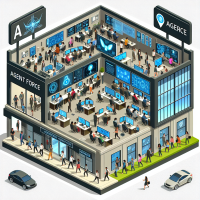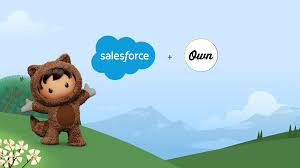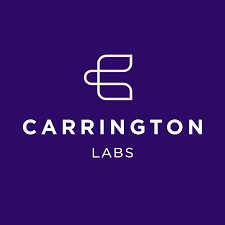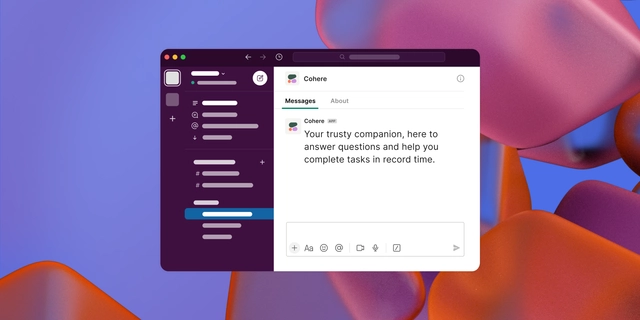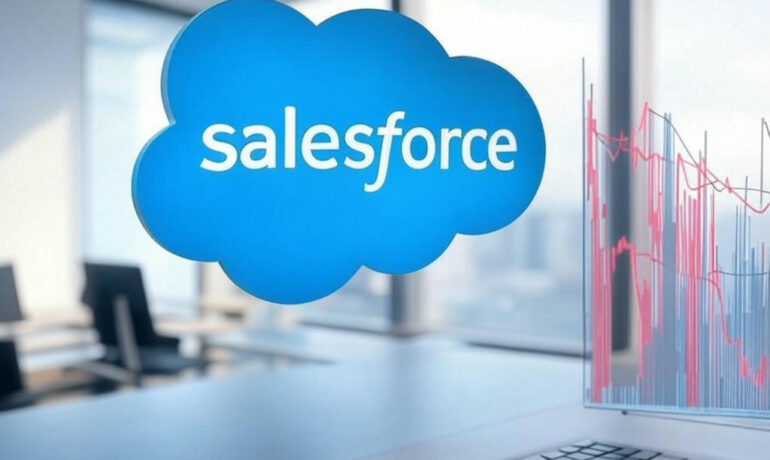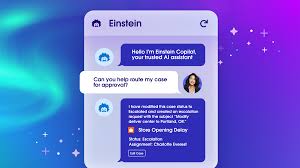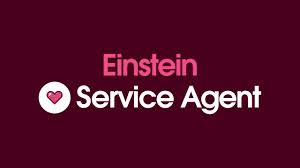Introducing Agentforce Service Agent: Salesforce’s Autonomous AI to Transform Chatbot Experiences Accelerate case resolutions with an intelligent, conversational interface that uses natural language and is grounded in trusted customer and business data. Deploy in minutes with ready-made templates, Salesforce components, and a large language model (LLM) to autonomously engage customers across any channel, 24/7. Establish clear privacy and security guardrails to ensure trusted responses, and escalate complex cases to human agents as needed. Editor’s Note: Einstein Service Agent is now known as Agentforce Service Agent. Salesforce has launched Agentforce Service Agent, the company’s first fully autonomous AI agent, set to redefine customer service. Unlike traditional chatbots that rely on preprogrammed responses and lack contextual understanding, Agentforce Service Agent is dynamic, capable of independently addressing a wide range of service issues, which enhances customer service efficiency. Built on the Einstein 1 Platform, Agentforce Service Agent interacts with large language models (LLMs) to analyze the context of customer messages and autonomously determine the appropriate actions. Using generative AI, it creates conversational responses based on trusted company data, such as Salesforce CRM, and aligns them with the brand’s voice and tone. This reduces the burden of routine queries, allowing human agents to focus on more complex, high-value tasks. Customers, in turn, receive faster, more accurate responses without waiting for human intervention. Available 24/7, Agentforce Service Agent communicates naturally across self-service portals and messaging channels, performing tasks proactively while adhering to the company’s defined guardrails. When an issue requires human escalation, the transition is seamless, ensuring a smooth handoff. Ease of Setup and Pilot Launch Currently in pilot, Agentforce Service Agent will be generally available later this year. It can be deployed in minutes using pre-built templates, low-code workflows, and user-friendly interfaces. “Salesforce is shaping the future where human and digital agents collaborate to elevate the customer experience,” said Kishan Chetan, General Manager of Service Cloud. “Agentforce Service Agent, our first fully autonomous AI agent, will revolutionize service teams by not only completing tasks autonomously but also augmenting human productivity. We are reimagining customer service for the AI era.” Why It Matters While most companies use chatbots today, 81% of customers would still prefer to speak to a live agent due to unsatisfactory chatbot experiences. However, 61% of customers express a preference for using self-service options for simpler issues, indicating a need for more intelligent, autonomous agents like Agentforce Service Agent that are powered by generative AI. The Future of AI-Driven Customer Service Agentforce Service Agent has the ability to hold fluid, intelligent conversations with customers by analyzing the full context of inquiries. For instance, a customer reaching out to an online retailer for a return can have their issue fully processed by Agentforce, which autonomously handles tasks such as accessing purchase history, checking inventory, and sending follow-up satisfaction surveys. With trusted business data from Salesforce’s Data Cloud, Agentforce generates accurate and personalized responses. For example, a telecommunications customer looking for a new phone will receive tailored recommendations based on data such as purchase history and service interactions. Advanced Guardrails and Quick Setup Agentforce Service Agent leverages the Einstein Trust Layer to ensure data privacy and security, including the masking of personally identifiable information (PII). It can be quickly activated with out-of-the-box templates and pre-existing Salesforce components, allowing companies to equip it with customized skills faster using natural language instructions. Multimodal Innovation Across Channels Agentforce Service Agent supports cross-channel communication, including messaging apps like WhatsApp, Facebook Messenger, and SMS, as well as self-service portals. It even understands and responds to images, video, and audio. For example, if a customer sends a photo of an issue, Agentforce can analyze it to provide troubleshooting steps or even recommend replacement products. Seamless Handoffs to Human Agents If a customer’s inquiry requires human attention, Agentforce seamlessly transfers the conversation to a human agent who will have full context, avoiding the need for the customer to repeat information. For example, a life insurance company might program Agentforce to escalate conversations if a customer mentions sensitive topics like loss or death. Similarly, if a customer requests a return outside of the company’s policy window, Agentforce can recommend that a human agent make an exception. Customer Perspective “Agentforce Service Agent’s speed and accuracy in handling inquiries is promising. It responds like a human, adhering to our diverse, country-specific guidelines. I see it becoming a key part of our service team, freeing human agents to handle higher-value issues.” — George Pokorny, SVP of Global Customer Success, OpenTable. Content updated October 2024. Like Related Posts Salesforce OEM AppExchange Expanding its reach beyond CRM, Salesforce.com has launched a new service called AppExchange OEM Edition, aimed at non-CRM service providers. Read more The Salesforce Story In Marc Benioff’s own words How did salesforce.com grow from a start up in a rented apartment into the world’s Read more Salesforce Jigsaw Salesforce.com, a prominent figure in cloud computing, has finalized a deal to acquire Jigsaw, a wiki-style business contact database, for Read more Service Cloud with AI-Driven Intelligence Salesforce Enhances Service Cloud with AI-Driven Intelligence Engine Data science and analytics are rapidly becoming standard features in enterprise applications, Read more




